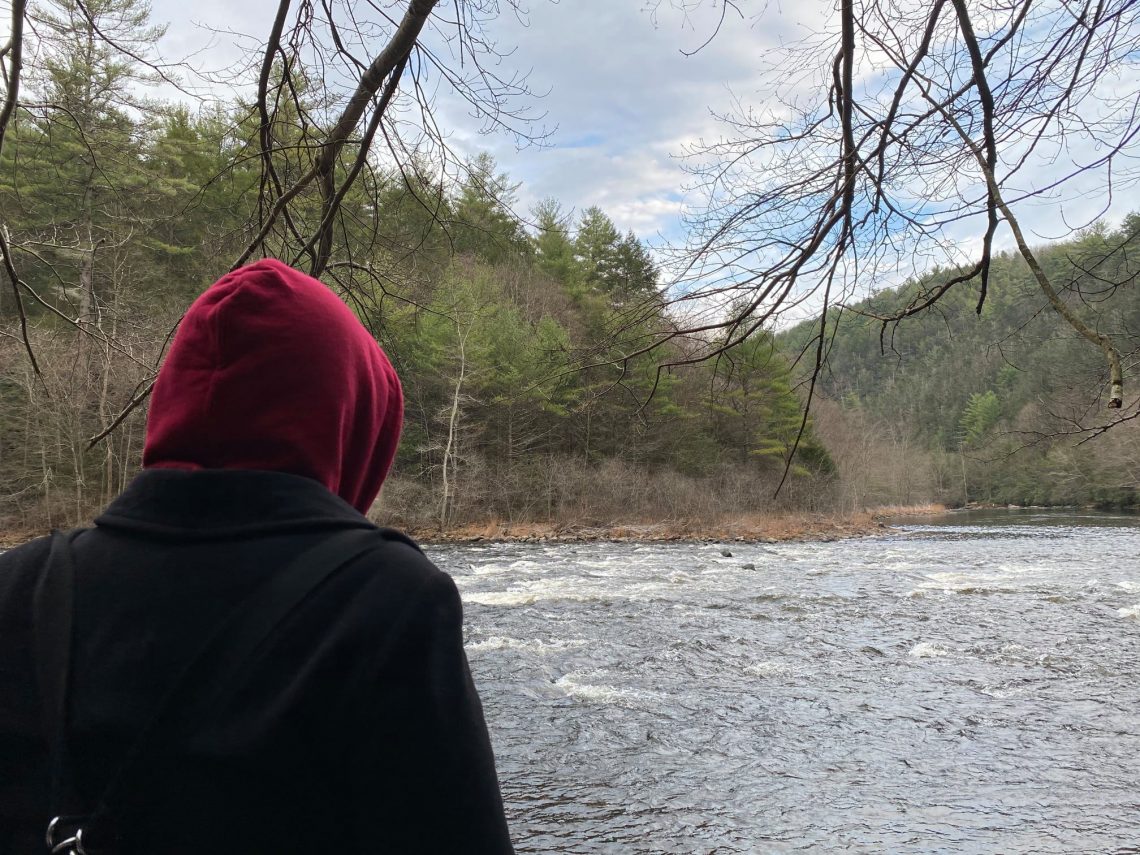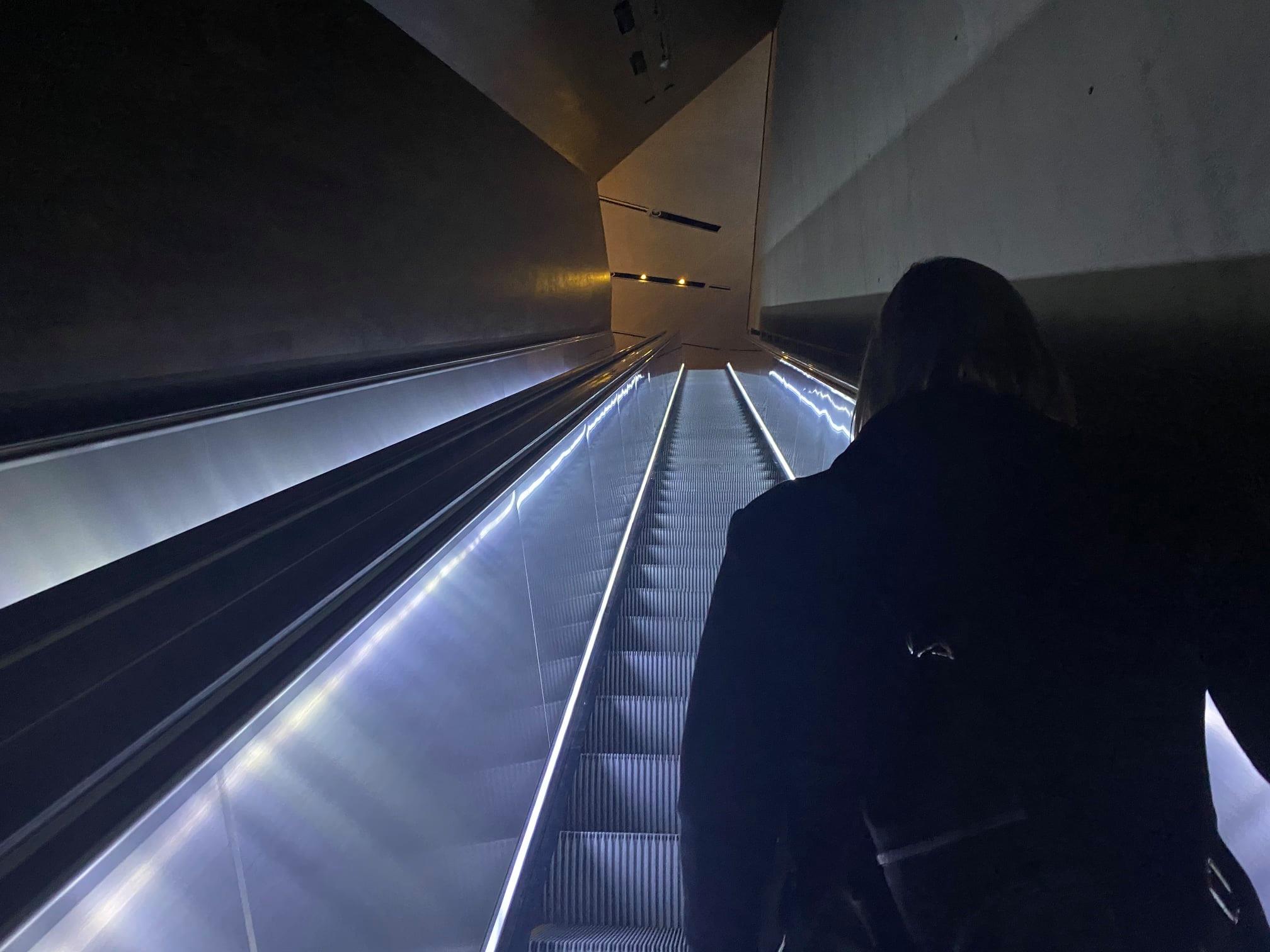
When She Talks About Peace
Most of us understand silence. We know what it means to find a quiet place, away from the roads and the crowds and the noise. We know how important it is to our peace of mind and our sense of balance. Sometimes we find it once a day or once a week, for a few minutes at a time, late at night or early in the morning, but we rarely go longer than a month without at least getting a moment. My wife hasn’t had any true silence, or a real quiet place, for the past eighteen months.
Some of you already know the story, and several of you have taken the time to ask how she’s doing, here and there, even in the middle of a lingering pandemic. Both of us thank you for that. Sincerely. But for those who aren’t familiar, let me sum it up this way. Melissa has pulsatile tinnitus. Every waking second of the day, she hears her own heartbeat at different intervals and different volumes in her head, a circulating rhythm that never goes away. It used to keep her up at night, screeching and screaming in her left ear more than her right. And at one point, over several weeks, she fell into a very dark place, the darkest I had ever seen for anyone. She fell into that dark place because the whole thing had been so sudden, so debilitating, so impossible to ignore, because no one could help, because every doctor and every test came up short of an answer, and because the whole thing started to feel hopeless, like she would never know silence again. Consider that the more she moved, the more that pulsing increased, like an upbeat heartbeat, pounding in her head.
During those early months, we developed a shorthand, she and I, so that I could better understand what she was hearing, a simple scale, from one to ten. For example, if she told me her sound was at a four or a five, I knew it had been or might be a rough day. A two or three meant things were mostly manageable. And a one, which continues to be rare, meant that she could almost forget it was there, though never entirely. But being at a one, two, or a three, on any given day, has required enormous effort on her part, sometimes even one, two, or three hours in total, just to keep the sound from getting out of hand. After studying this issue exhaustively, she now has a routine of self-prescribed physical therapy, tools and touches that help her to work through the myofascial muscles scattered across her head and neck. It’s by no means an easy task and there’s very little I can do, however much I love her, however much I want to make it all go away. But she’s been working from home since March and she continues to be more determined than ever to find a solution, however arduous the path behind or ahead.
On Wednesday afternoon, we walked to the middle of an empty field and sat down in the sprinkling rain, our faces chilled by the Pennsylvania breeze. Aside from the echoes of people far away or the cars on a distant highway, we were completely alone on a bed of boulders, the kind of place someone might go for solace, to reflect in veritable silence. After a few minutes, neither of us talking, I offered up a fairly casual word. “Peaceful,” I said, as if we were both experiencing the same kind of moment.
She reminded me that quiet places are harder for her, most of the time, because they draw attention to the nagging, ever-present sound in her ears. She also talked about missing those moments that people talk about as spiritual, opportunities to sit and be still with God. Drips of rain were still falling when she talked about being near steady water, near rivers and streams, where the sound of something natural and constant helps to drown out whatever else is pulsing in her head. So we left the field and I drove her to the edge of the Lehigh River rapids where we stayed for about 30 minutes. We walked, stood, and listened, mostly without saying a word, then got back in the car as she smiled, laughed, and eventually took a nap, despite my erratic driving.
When Melissa talks about peace, about something being truly peaceful, I know what she means and I know what she wants. She wants the sound to stop. She wants to be able to sit in an empty room and hear nothing. And I have no doubt that she’ll get there. People say that I can be stubborn and tenacious, that I’m relentlessly hopeful and optimistic, but the fact is, I’m only a reflection of this incredible woman who calls me her husband, a woman who takes every difficult day in stride. She’s more competent, determined, and successful in the things she does, in every phase of life, than I have ever been. If you ask her how she’s doing, she’ll never shy away from telling you the truth, admitting the battle and what’s she’s doing to fight back, talking about the process and the continuing struggle for peace. But she doesn’t stay in that difficult, warring headspace in the same way she once did. She finds solace in games, and humor, and time spent with others, even virtually. She takes on projects and subjects that challenge her. She makes it easy for me to love the moment when our garage door rolls up every day and I walk inside.
Honestly, I could probably go on, drawing some correlation between the world as we want it to be and the world as it is, but I really just wrote this because I love my wife, and because I’m thankful, every day, for the way she teases me and teaches me and reasons with me, about the world as we believe it can be, a world where peace is always worth striving to attain, however small or great the odds.
Happy Thanksgiving.



